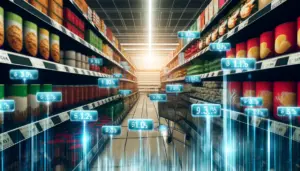The Core Consumer is a Millennial With Kids, and Their Demand for Frozen Food is Higher Than Ever
The global frozen food market, valued at $265 billion, is witnessing an increase in demand, especially in the U.S. This surge, accelerated by the COVID-19 pandemic, has underscored the need for a resilient cold storage supply chain infrastructure to ensure the growth and safety of this sector. However, approximately 13% of all food produced globally is lost annually due to inadequate cold storage. Advancements in cold storage infrastructure will play a critical role in shaping the future of frozen food as the sector continues to expand.
The question remains, what factors come into play in shaping this rise in frozen food purchases? Alison Bodor, President & CEO of the American Frozen Food Institute offers several reasons for the uptick in sales. Not surprisingly, consumer wants, needs, and product satisfaction have much do with the increase.
Alison’s Thoughts
“Recent research has found that shoppers turn to frozen foods to reduce food waste. Because frozen foods have a long shelf life, consumers actually eat what they purchase, which helps extend their food dollar. The frozen food category in the U.S. has seen strong growth over recent years, propelled in part by the pandemic but continuing to grow. Sales have increased by nearly $20 billion since 2018. Today, a $72 billion category at retail.
Freezing is a natural way to preserve foods. There are no additives added to help foods freeze. It’s really nature’s pause button. And in fact, fresh fruits and vegetables are generally frozen within hours of harvest, which locks in their nutrients. Because they can also be picked at the peak of ripeness, the freezing process also locks in their delicious flavor. The aisle today is full of so many great options to meet consumers’ demands and needs for health, quality, and variety. Virtually all households consume frozen foods.
We know from AFI research that the core consumer is the millennial with children. This makes sense because they’re in the busiest time of their lives. So, they’re looking for ways to still serve healthy foods, and they need help to do so. And they’re turning to frozen foods for that help. So not only are frozen foods good for the wallet, they’re good for the planet too.”
Article by James Kent







